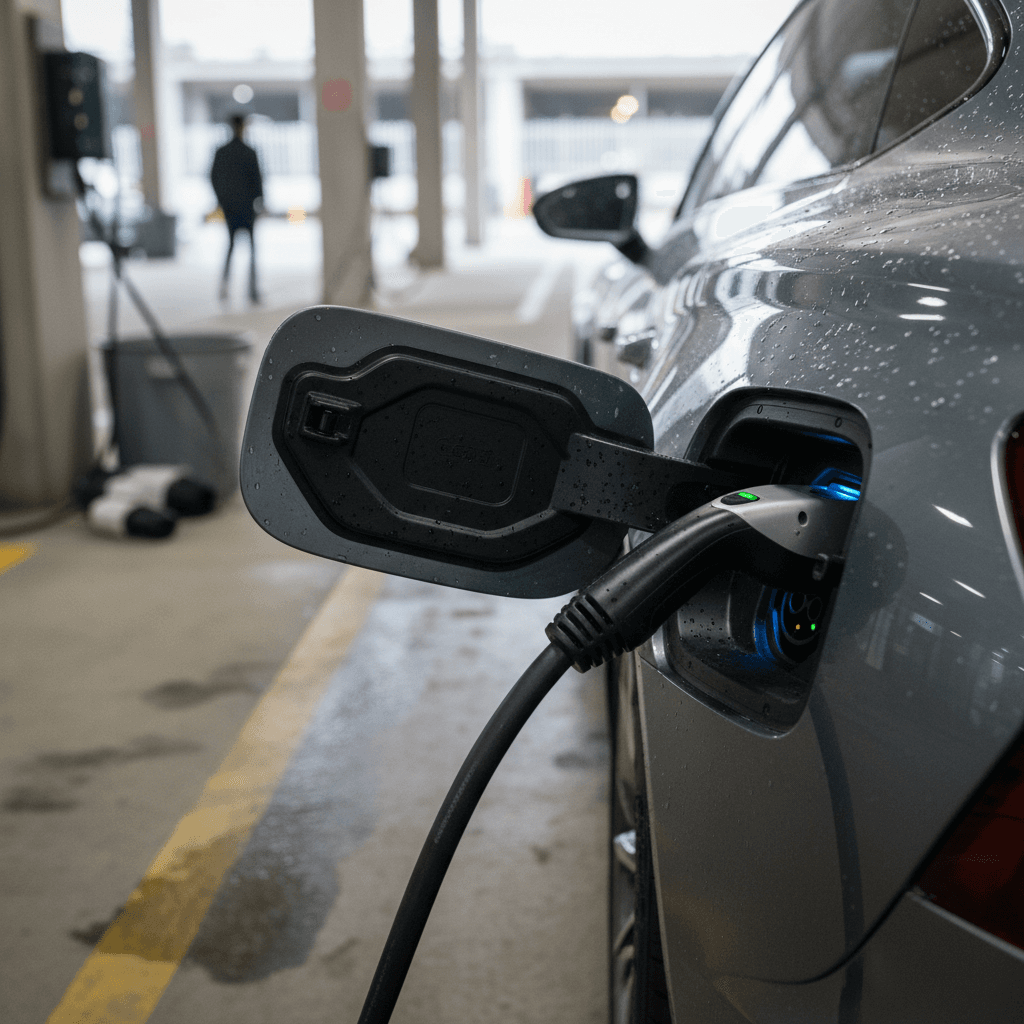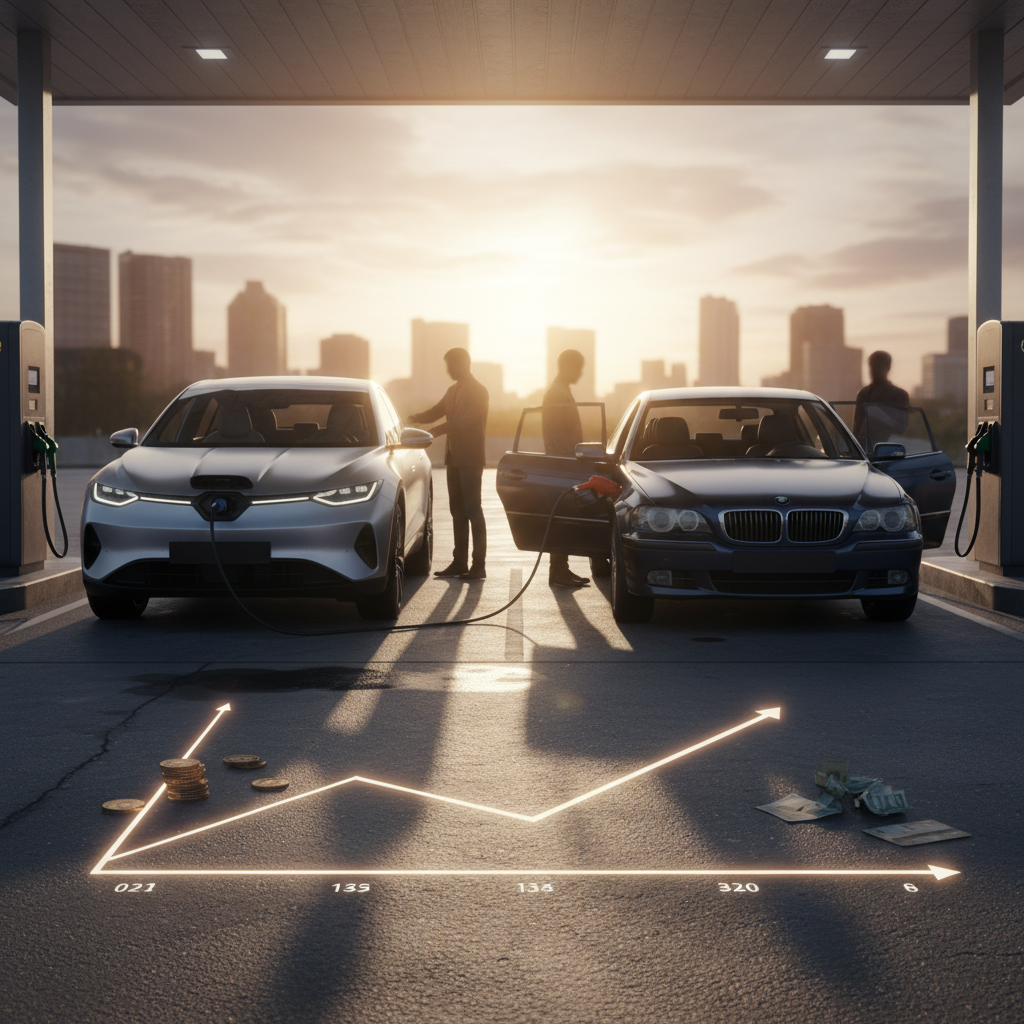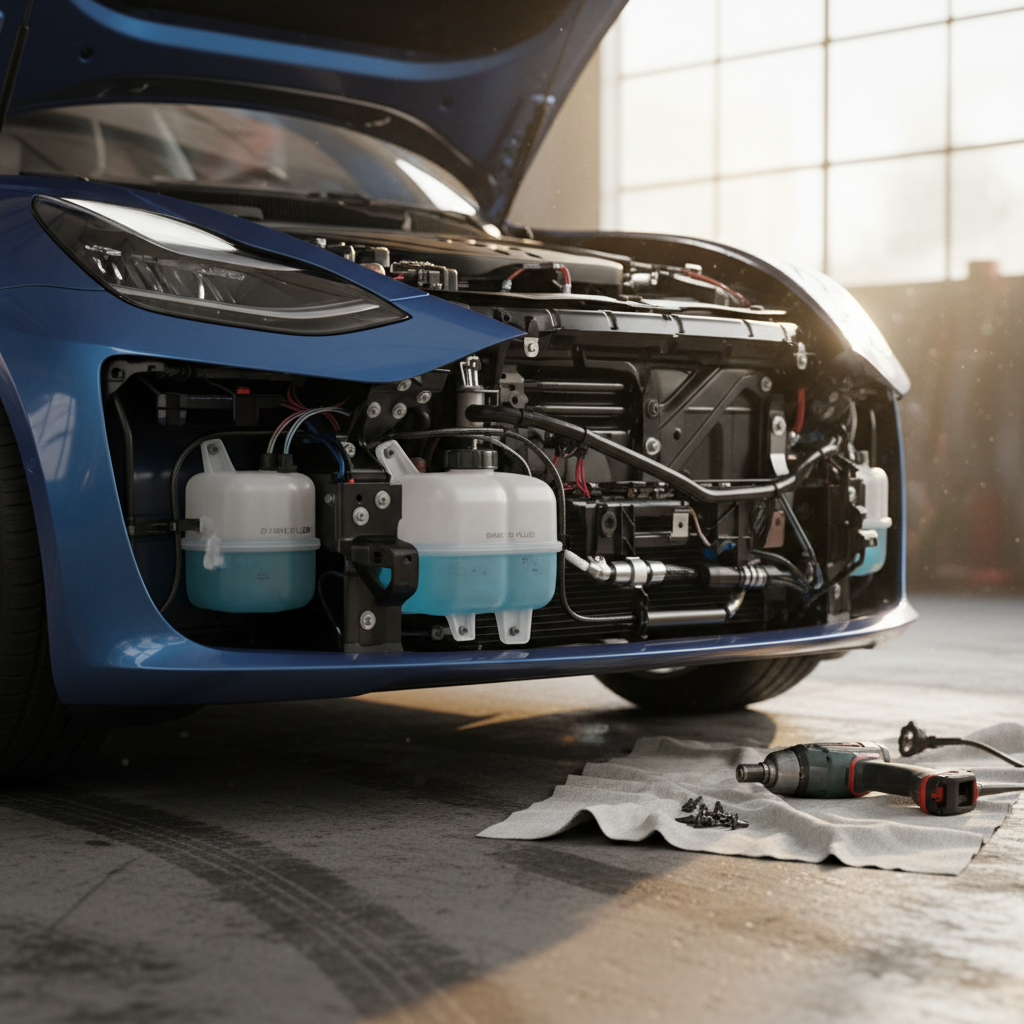Search for “best rated cars” in 2025 and you’ll get a blizzard of lists: Consumer Reports Top Picks, Kelley Blue Book’s Best Electric Cars, Cars.com awards, YouTube reviewers with hot takes. The tricky part is turning all of that into a short, practical list of vehicles that actually make sense for you, especially if you’re considering an electric car or a used EV.
Quick takeaway
Why “best rated cars” looks different in 2025
Ten years ago, “best rated cars” lists were dominated by gas sedans and crossovers. In 2025, EVs and hybrids are the headline acts. Consumer Reports’ Top Picks, Kelley Blue Book’s rankings, and Cars.com’s awards all give prominent spots to electric models like the Hyundai Ioniq 6, Tesla Model Y, Kia EV9, and Lucid Air. At the same time, reliability surveys still show fully electric vehicles having more issues than gas cars, even as they steadily improve.
EVs in the ratings: 2025 snapshot
If you’re shopping with ratings in mind, that shift matters. A top‑scoring electric sedan or SUV can deliver performance and tech that would have cost six figures a decade ago, yet you can now buy many of them used, with sizeable discounts and federal/state incentives layered on top.
How experts decide which cars are “best rated”
Different outlets weigh things differently, but the recipe for a best rated car in 2025 usually includes:
- Safety and crash-test scores, plus active driver-assist tech
- Reliability and owner satisfaction data over several model years
- Ride, handling, and noise levels in real-world testing
- Range and efficiency for EVs and plug‑ins
- Value for money: price, equipment, and running costs
- Interior space, comfort, and tech usability
Consumer Reports & long-term reliability
Consumer Reports leans heavily on member survey data and objective track testing. When they highlight a car, like the Tesla Model Y as their best electric vehicle or Lexus hybrids in multiple categories, it’s as much about day‑to‑day livability as it is about specs.
KBB, Cars.com & expert test drives
Kelley Blue Book and Cars.com weigh expert drive impressions, comfort, range, tech, and value. That’s how the Hyundai Ioniq 6 lands at or near the top of many "best electric cars" lists, and why the Kia EV9 earned Cars.com’s 2025 Best Electric Vehicle award.
How to use ratings smartly
Top rated EVs of 2025: new-car shortlist
Let’s start with the new‑car landscape, because it shapes what you’ll see on dealer lots and, soon, in the used market. Across major 2025 rankings, a few electric models consistently appear near the top.
Headline best rated electric cars of 2025
These models show up repeatedly in expert “best” lists
Hyundai Ioniq 6
Aero‑sedan with standout efficiency and range. KBB’s #1 Best Electric Car of 2025 and a finalist in other awards thanks to its 342‑mile max range, fast 800V charging, and strong value.
Best for: Commuters and road‑trippers who want sedan comfort and excellent efficiency.
Kia EV9
Three‑row electric SUV that won Cars.com’s Best Electric Vehicle of 2025. Offers 230–304 miles of range, true family space, and fast DC charging at a price that undercuts many luxury rivals.
Best for: Families replacing a gas three‑row SUV or minivan.
Tesla Model Y
Consumer Reports’ 2025 "Best Electric Vehicle" pick. Strong acceleration, long range, dense Supercharger access, and an enormous owner base, though build quality and service experiences can vary.
Best for: Drivers who value charging network convenience above all else.
Lucid Air
Ultra‑long‑range luxury sedan with variants rated up to the 500‑mile neighborhood and sports‑car acceleration. A finalist in several 2025 EV awards, but new pricing is still firmly premium.
Best for: Luxury buyers and long‑distance highway drivers.
Hyundai Ioniq 5 & 5 N
The Ioniq 5 hatchback keeps appearing on "best EV" lists for its blend of space, performance, and fast charging. The new 5 N performance variant joins 2025 nominee lists as a track‑capable hot hatch.
Best for: Small families who want crossover practicality and fun driving dynamics.
Volkswagen ID. Buzz
Retro‑styled electric van recognized as a 2025 nominee for its family‑friendly cabin and distinctive design. Range isn’t class‑leading, but character is.
Best for: Families who prioritize personality and space over maximum efficiency.

Most reliable and highly rated EVs
Performance and features are only part of the story. Reliability surveys still show EVs having more issues than gas cars on average, but the gap is narrowing, and specific electric models now score quite well.
EVs that blend strong expert scores with better‑than‑average reliability
These electric cars have been highlighted by Consumer Reports or similar outlets for solid reliability relative to other EVs, while still earning high road‑test or expert ratings.
| Model | Type | Notable strengths | Where it shines |
|---|---|---|---|
| BMW iX | Luxury SUV | High reliability scores for a modern EV, quiet ride, strong performance | Premium family SUV with long‑distance comfort |
| Hyundai Ioniq 6 | Midsize sedan | Top‑tier expert ratings, efficient, comparatively good early reliability data | Daily drivers and commuters who value efficiency |
| BMW i4 | Compact sedan | Sporty dynamics with solid reliability profile for an EV | Drivers who want BMW 3‑Series feel with electric power |
| Kia EV6 | Crossover | Well‑rounded, good charging speeds, decent reliability scores | Single‑car households who want versatility |
| Tesla Model Y | Crossover | Top CR road‑test score and owner satisfaction despite average reliability | Drivers who prioritize charging network and software features |
Always check the latest data for the specific model year you’re considering, as scores evolve over time.
Ratings ≠ guarantee
Best rated used electric cars for value
Because EV prices have corrected so quickly over the last few years, some of the best rated cars of 2022–2024 are now used‑car bargains. You get the engineering that earned high scores, without paying original‑MSRP money.
Shortlist: Best rated used EVs that are strong values today
Models that combined high expert ratings with big price drops on the used market
Tesla Model 3 (2020–2024)
Still one of the best rated EV sedans for range, driving dynamics, and software. Used prices have come down sharply, especially for rear‑wheel‑drive and earlier Long Range models.
- Pros: Strong DC fast‑charging access, OTA updates.
- Cons: Variable build quality, firmer ride, earlier cars with different battery chemistries.
Ford F‑150 Lightning (2022–2024)
Award‑winning electric pickup that brings instant torque, quiet cruising, and clever features like vehicle‑to‑home power. New‑truck prices are steep; used ones can be far more approachable.
- Pros: Practical bed, familiar F‑150 cabin, huge torque.
- Cons: Range drops significantly when towing or in cold weather.
Hyundai Ioniq 5 & Kia EV6
Siblings on the same 800V platform that earned rave reviews for design, performance, and ultrafast charging. They’re now common on the used market, often with remaining battery warranty.
- Pros: Great charging curve, roomy interiors on Ioniq 5.
- Cons: Some early‑build software quirks; check for updates.
Nissan Leaf & Chevy Bolt
Not the flashiest, but earlier best‑value EV picks that can be exceptional used deals. Range is modest by 2025 standards, but operating costs are low.
- Pros: Affordable, simple, widely available used.
- Cons: Limited DC fast charging on many Leafs; Bolt recall history means you must verify battery work.
Which “best rated” car actually fits your life?
A mistake I see all the time: shoppers fixate on whichever car is ranked #1 overall, even if it doesn’t match their driving pattern, climate, or budget. Instead, start with how you live, then use ratings to narrow the field.
Match a top‑rated car to your real‑world use case
1. Daily commuter (under 60 miles/day)
Look for compact or midsize EVs with strong efficiency rather than maximum battery size. Hyundai Ioniq 6, BMW i4, and Tesla Model 3 are all overkill in a good way here, especially used examples.
2. Family hauler or road‑trip machine
Prioritize cabin space, charging speed, and network coverage. Kia EV9, Tesla Model Y, Hyundai Ioniq 5, and Kia EV6 are frequent best‑rated picks that work well for families.
3. Occasional long‑distance driver
If you take a handful of 400+ mile trips a year, range and fast charging matter more. Long‑range versions of Ioniq 6, Lucid Air, or well‑specced Model 3/Model Y are worth a look.
4. Truck or towing use
Electric trucks like the Ford F‑150 Lightning or Rivian R1T get rave reviews for performance, but towing eats range. Ratings often highlight capability without fully capturing that trade‑off, go in with eyes open.
5. Budget‑first shopper
Consider earlier‑generation EVs like the Nissan Leaf, Chevy Bolt, or older Hyundai/Kia models. They may not top today’s lists, but they were highly rated at launch and can be very cheap to buy and run used.
How to shop top‑rated EVs on the used market
Once you know which highly rated models fit your life, the next question is where, and how, to buy. Used EVs introduce one extra variable that traditional ratings don’t fully capture: actual battery health.
Why battery health matters more than original ratings
Key checks when buying a top‑rated EV used
- Battery health: Ask for a recent battery diagnostic or state‑of‑health estimate rather than just total miles.
- Charging history: Heavy DC‑fast‑charging use isn’t necessarily a deal‑breaker, but you want to know about it.
- Warranty coverage: Many EV batteries carry 8‑year/100,000‑mile (or similar) warranties that transfer to you.
- Software updates: Confirm major firmware and safety updates have been applied.
How Recharged can simplify this
At Recharged, every used EV comes with a Recharged Score Report that includes verified battery health, fair‑market pricing, and a plain‑English breakdown of how that particular car has aged. Our EV specialists can help you compare a highly rated Model 3 against, say, a Kia EV6, so you’re not just relying on generic rankings.
You can browse, finance, trade in, and arrange nationwide delivery entirely online, or visit our Richmond, VA Experience Center if you prefer to see cars in person.
Ratings vs reality: how the same model can be a great or terrible buy
Use this to sanity‑check any "best rated" EV you’re considering in the used market.
| Scenario | What the ratings say | What you should verify |
|---|---|---|
| Early‑build Ioniq 5 | Award‑winning performance, fast charging, strong value | Battery condition, software update history, any TSBs or recalls addressed |
| Tesla Model 3 with high mileage | Top expert scores and owner satisfaction, especially for range and software | Supercharger usage vs home charging, suspension wear, panel gaps and water ingress issues |
| Chevy Bolt from recall years | Praised as an affordable EV with good range and value | That recall battery work was completed and verified, and pack health is currently strong |
The model on paper is only half the story; the specific vehicle in front of you matters just as much.
Common pitfalls when chasing top ratings
Ratings and awards are useful, but they can also mislead if you don’t read the fine print. Here are the big traps to avoid when you’re shopping the “best rated cars” lists.
- Assuming the #1 car on a list is the best car for you, regardless of body style or use case.
- Ignoring reliability and repair data because the test drive was impressive.
- Focusing only on range and 0–60 times while overlooking charging speed and network coverage.
- Treating a five‑year‑old review score as if nothing has changed since, despite software updates, recalls, or major price shifts.
- Buying a used EV solely on mileage, without checking battery health or warranty status.
Don’t skip the boring due diligence
FAQ: Best rated cars and EVs in 2025
Frequently asked questions about best rated cars
Bottom line: Best rated cars vs best car for you
“Best rated cars” lists are a great starting point, especially in 2025 when so many high‑scoring models are electric. Names like Hyundai Ioniq 6, Kia EV9, Tesla Model Y, and Lucid Air rise to the top for good reasons: they combine strong safety performance, usable range, and competitive pricing in a rapidly maturing EV market.
But ratings alone won’t tell you whether a particular car works for your commute, climate, charging situation, and budget. The smartest move is to pick a short list of top‑rated models that match your needs, then look closely at reliability, charging, and battery health, especially if you’re buying used.
If you’re ready to turn research into ownership, you can browse used examples of many of these highly rated EVs at Recharged, complete with Recharged Score battery diagnostics, fair‑market pricing, EV‑savvy financing, and expert help comparing your options. That way, you’re not just buying the car the internet says is “best”, you’re buying the one that’s best for you.



